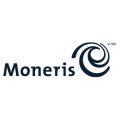If you’re running a small business with so many other things to manage day-to-day, preventing fraud can sometimes end up at the bottom of your list. Thankfully, there are a lot of things you can do to protect your business—both in terms of simple everyday measures to and fraud prevention tools that do the work for you.
But it’s important to keep in mind there is no “silver bullet” when it comes to fraud prevention. Sometimes those tips you’ve heard about aren’t actually that safe. These are just some of the common myths about fraud prevention best practices that could actually be hurting your business long-term:
1. CVV or AVS numbers protect you against chargebacks
While those three little numbers on the back of credit cards are an important part of verifying a payment, they do not count as proof that the cardholder gave you permission to use their card number. Collecting CVV and AVS numbers alone does not protect you from chargebacks, whether you’re using a secure online payment page or taking the number over the phone. In fact, if you are collecting this information make sure you are storing it in a secure way not just writing it down on a piece of paper which anyone can find as you could be compromising your customers’ data. The best way to authenticate a cardholder’s identity is to layer fraud prevention tools into your payment system instead.
2. The payment terminal is secured so I can leave it with the customer
Yes, payment terminals provided by a processor like Moneris are secured for transactions but unless you have purchased a specific unattended solution, do not leave your payment terminal unattended. Unfortunately, some people will just walk away without paying or, worse, more advanced fraudsters may try to tamper with the device. Routinely check your devices for signs of tampering and contact your payment processor for repairs when needed.
3. You can’t fight chargebacks
Despite there being over hundreds of thousands of chargebacks per a year, only 15% of merchants try to fight them. This may be because some merchants believe they won’t win and it’s easier to eat the cost. While on one hand, it is good to think critically about whether you want to fight a chargeback since there are chargeback fees for investigating, 80% of chargebacks tend to be fraud-related. In those cases the business actually has a good case to fight a chargeback claim, especially if:
- You have a clearly stated refund and cancellation policy in place
- You provided a receipt at purchase
- You have proof that a delivery was made
- You have 3-D Secure 2.0 which verifies the cardholder’s identity
4. Fraud prevention tools aren’t worth the extra cost
There are a lot of overhead costs to running a business, so it’s normal to look for ways to save. You have lots of other measures in place, so why not skip fancy fraud prevention tools? But did you know that with interchange plus pricing, what you are being charged per a transactions is directly impacted but what prevention measures you have in place?
How you process transactions—whether in-person or online, keyed in manually or tap payment, with fraud tools or without—influences how much you pay per a transaction based on how risky the situation is. Transactions that are more prone to fraud are going to cost more, so consider seriously how much you are saving in monthly fees when you are paying more per a transaction and likely are on the hook when fraud happens.
5. My Moneris device is PCI DSS compliant so that means I’m compliant too
All Moneris payment solutions are compliant with the Payment Card Industry Data Security Standard (PCI DSS)—the industry standard for accepting and processing credit card information safely—however, proper compliance requires the business to also take action. There are 12 principle requirements in PCI DSS, including: using secure passwords for accounts, securely storing any and all customer data, regularly updating your anti-virus software, and regular tests of your security systems. No single product or vendor is going to meet all the requirements for you so make sure you review and understand all the measures and what actions you need to take.
For more guidelines and helpful references on fraud prevention techniques, make sure to visit moneris.com/fraud.
The information in this article is provided solely for informational purposes and is not intended to be legal, business or other professional advice or an endorsement of any of the websites or services listed.
Share

